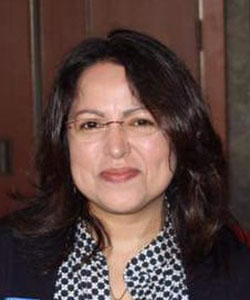
06 Mar Emergency Medical Coverage Funds
Several weeks ago, a friend and freelance colleague fell in the cafeteria of the courthouse where some of us work. The floor was wet and the “wet floor signs” were out of her line of vision. Once she was embarrassingly sprawled on the floor, the signs were pointed out to her, where they were pushed completely out of the way and facing different directions. As she fell on the wet floor, the cafeteria staff, before even inquiring as to her physical well-being, were insisting that the floor was not wet, despite the fact that my friend had a wet dress under her!
Needless to say, she was not offered any help to get up from the cafeteria workers and would have had to stay on the floor if not for a helpful offer from someone who appeared to be an attorney.
 Having been placed in a chair, the cafeteria personnel proceeded to push her, chair and all, toward the exit door into the corridor. My friend was left there, alone, in pain and scared until she was able to get a hold of one of our colleagues who went in search of the interpreter coordinator and her supervisor who were in a meeting. The coordinator and her supervisor came to keep my friend company while she waited for the ambulance, as she was unable to get up or walk.
Having been placed in a chair, the cafeteria personnel proceeded to push her, chair and all, toward the exit door into the corridor. My friend was left there, alone, in pain and scared until she was able to get a hold of one of our colleagues who went in search of the interpreter coordinator and her supervisor who were in a meeting. The coordinator and her supervisor came to keep my friend company while she waited for the ambulance, as she was unable to get up or walk.
The cafeteria employees may have been under precise instructions not to intervene. Nonetheless, my friend is basically traumatized by the terrible experience she suffered and from not having received any help when the incident occurred.
She suffered a broken hip and has been convalescing for the last seven weeks. She is recovering nicely thanks to her good metabolism and overall fitness, but the experience kept her and her husband from earning money during a great part of those weeks. They are also facing pretty serious expenses for doctors, hospitalization, medicine, and more, and some of those expenses will have to come out of pocket.
A family member that recently started working as a freelance interpreter after working for years in corporate banking was telling me that the income for interpretation doubled the employment one. Well, I had to suggest that all the extra money should be held in the business checking account to pay for all the extras that we as freelancers do not have access to, such as vacation, holidays, sick days, retirement funds, health insurance, and taxes due at the end of each year.
The collective experience reminds us that as freelancers, we must add to our fees a cushion to cover all these sorts of additional expenses, such as medical and disability insurance or attorney fees if litigation becomes necessary. The level of skill required to be an interpreter does not need explanations as to why we charge the fees we charge; however, it is good to have these additional expenses in mind the next time we raise our fees.
If we are lucky and share expenses with a loved one, such as a husband, wife, other family member or partner, it would not be as hard as facing these health issues alone, but there are many of our colleagues who are single or not sharing everyday life with someone, and they will have a hard time providing for themselves during emergency circumstances such as the one my friend went through.
 For good measure it would not hurt to investigate some type of personalized disability insurance policy.
For good measure it would not hurt to investigate some type of personalized disability insurance policy.
The courthouses where we work can also make an effort to send a get-well text, e-mail, or phone call. I know there can be legal implications, but courtesy can never hurt, right? I leave that one to the legal minds. For our part, we as professionals and friends can keep in mind that, since we are not employees, taking an interest in all our per-diem colleague’s well-being can make a great difference to all of us.
 Hilda Zavala-Shymanik is a state certified/approved Spanish court interpreter and translator with more than seventeen years of experience in legal, medical, corporate, and non-profit settings in New York, New Jersey, Illinois, and Wisconsin and is certified/approved in those four states. Hilda is a former Vice Chair, Board Member, Treasurer, Conference Committee Chair, member of the Training and Education and Advocacy Committees, and current member of the blog team and Chair of the Elections Committee of the National Association of Judiciary Interpreters and Translators, as well as former president of the New York Circle of Translators.
Hilda Zavala-Shymanik is a state certified/approved Spanish court interpreter and translator with more than seventeen years of experience in legal, medical, corporate, and non-profit settings in New York, New Jersey, Illinois, and Wisconsin and is certified/approved in those four states. Hilda is a former Vice Chair, Board Member, Treasurer, Conference Committee Chair, member of the Training and Education and Advocacy Committees, and current member of the blog team and Chair of the Elections Committee of the National Association of Judiciary Interpreters and Translators, as well as former president of the New York Circle of Translators.
She is an active and voting member of NAJIT, ATA, MATI and other professional groups. Hilda has two certificates in Legal Interpreting in Spanish and English, the latest one from NYU. Hilda is the current staff interpreter of the 23rd Illinois Judicial Circuit as well as a Cook County (Illinois) Spanish Interpreter employee. Hilda is a former Staff Interpreter at Essex County Superior Court in New Jersey, where she worked for six years. Born in Chicago, Hilda lived for twenty years in Mexico and loves traveling. She continuously looks for opportunities to promote and advance the interpreting profession. Contact: hshymanik@yahoo.com
Featured photo by Camilo Jimenez on Unsplash. Text-body photos: watch-your-step sign by rfind at pixabay; Water On The Deck by Peter Griffin at PublicDomainPictures.net.

Businesses are encouraged not to use wet floor signs because it means staff is aware there is a problem. Even if you sign a release of liability to participate in an activity, the business can still be liable if there was negligence involved. Why was the floor wet? Was it a spill? If someone let the staff know it was wet, did they try to clean the mess or did they just put a sign? We’re they cleaning? What should they have done: either dry the floor or don’t get the floor wet by mopping during high traffic times. Don’t take just my word as legal advice. I’m not an attorney, but I think it’s time to talk to a personal injury attorney.
Hello Sam,
The courthouse cafeteria closes at 2 p.m., and around an hour prior, they start cleaning. Part of the problem is that they do not wait for the cafeteria to be closed to start cleaning. I would assume the reason they do not wait is that by that time, traffic has slowed down, and since they are paying their employees, they want to take advantage and avoid paying for overtime. Which makes business sense but, in this case, has exposed a friend to suffer a terrible accident.
After they mop the floors, they set up the signs, but as they move to clean other areas, they keep moving the signs, instead of waiting for that area to be dry or just buying additional signs, creating the danger our colleague suffered.
From the little I know the cafeteria is privately owned and operated.
And yes, legal advice makes perfect sense. Thank you for your comment and questions.
Hi Hilda
We took the Citi program couple years ago. Which personalized disability insurance you may suggest.
Thank you
Hello Yvy,
I do remember you. We are still in a chat together! There are many reputable companies that offer that type of insurance, but I was specifically speaking of having personal savings to be able to afford a long period of convalescence. However, your message prompted me to look into it and Northwestern Mutual, New York Life, and State Farm are all well-known insurance companies that I may explore. Thank you for encouraging me to research an actual insurance plan with your comment!
Sorry about your friend, hope she is doing okay and that she gets compensated and made whole again for all the suffering she is no doubt enduring due (at least apparently) to someone’s negligence. That said, I think it would be nice if NAJIT could at least explore the possibility of offering some type of health insurance for members. I don’t know whether that falls outside the scope of the organization. What I do know, however, is that many of us make too much money to qualify for public health insurance, but not enough to pay for the steep rates charged by the private sector for individual/family plans. As far as I know, this is the only organization we have to advocate for our rights. A decent health plan would go a long way to ensure that we have something to fall back on in an emergency while we wait for the Greatest Country on Earth to catch up to some other lesser nations that—although not as rich—somehow manage to offer free, universal, quality healthcare to ALL their citizens. A total mystery to me, how they can do that. Anyway, there’s an idea.
Hi Arnaldo,
This is me responding strictly in a personal capacity, but we signed on a few years ago to a program that actually had a webinar through NAJIT. Here’s their website.
https://www.smallassociations.org/healthcare
It’s a LOT more paperwork than a “traditional” health-insurance plan, and medical providers and their administrative staff, especially if you go to the doctor often (e.g., small children), can’t seem to wrap their heads around it and make tons of mistakes, leading to long hours spent on hold chasing after people for the right paperwork and fixing their mistakes. THAT said if you can put up with that annoyance, and especially if you use the healthcare system a lot less often and are pretty healthy, this can be a good option. We pay just under $1000 per month for a family of five with a deductible of $500 — that deductible is the *total* for each new “need,” regardless of how long it lasts (e.g., you have an accident, you are hospitalized, you need meds, therapy for years, etc., all you will pay is $500, forever, nothing more). (So forget about all those other notions like out-of-pocket maximums, copays, and other percentages.)
It’s a combination of a low-budget PPO insurance plan for regular annual/semi-annual checkups plus a “cost-sharing program” for big, unexpected emergencies. We took it because it was the best we could find at the time, compared to the absolutely insanely expensive plans offered on the private market.
All that said, it’s no disability insurance; it’s just to cover medical expenses but not replace lost income due to injury or illness.
Hi Editor
Thank you for the resource, I’ll look into it. I think in NY the Freelancers Union also offers health plans. For full disclosure, I do have coverage through my employer, but most here probably don’t, and it will be gone the moment I retire. I’ll refrain from commenting on what is considered ‘cheap’ in our market-driven system at this time, other than to say that it isn’t just the rates practiced that is insane. It’s the whole system, and by design. I don’t know if you have heard of the Debt Collective yet, but they are trying to fight this model of for-profit insecurity by design. https://debtcollective.org/
Hi Arnaldo,
NAJIT does offer a health plan. The information is under membership.
https://najit.org/membership/
https://helpcenter.salahealthcare.org/portal/en/kb/articles/enrollment-walk-through-video
Say hi to Rodrigo, Rapha and Liz from me!
So sorry to hear and as I understand it the court did not file a workman’s comp. claim? I understand that we are freelance interpreters however if the floor was wet and there was no sign that mentioned it the court is liable to pay all expenses related to this fall.
I thought of buying short and long term disability insurance and will check the pricing.
Hoping the best for this interpreter
Thank you, Maria. I will send my friend your well wishes. I believe the cafeteria is owned and operated by a different entity. I am checking on quotes myself this coming weekend.
Is there a way we can send our colleague a joint get-well card from the members of NAJIT?
Hello Michelle,
My friend is on the mend but I like your idea. If you would like to organize a card signed from members I would make sure she gets it, and would sign it myself. Just keep me posted.
Regards,